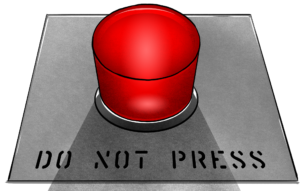Throughout the history of gaming, there has always been an element of choice involved. Choice can extend to game play mechanics, routes you take, or strategies you implement. Choice can also determine what kind of hardware you play on or software you pick up. It could even determine what version of a certain console you have or if you get a software title at launch or later on down the road.
However, many games now use the phenomenon of choice as a method to make the ever-changing gaming experience something more personal. Endings and even character interactions are all weighed upon the fulcrum that is the player’s choice. Should you choose to interact with the social outcast in your party, you may just earn their respect and avoid them turning on you during a key part of the story. You may even decide to shun someone offering you aid, only to see the wisdom in your actions later when it is revealed that the character is indeed a villain. Choice in a video game setting is a powerful thing and just like with any power, there comes a need for great responsibility.
Today, we’re going to be talking about choice in video games and how it positively and negatively affects the gaming experience overall.
Choice is a double-edged sword when it comes to design, story, and replayability. If choices are presented as meaningful, then they are generally considered positive for the player, no matter how bad the choice may seem. By giving a player a choice in who they want to interact with, how they handle that interaction, and what consequences are derived from that interaction, then you are able to craft a particular experience that is more unique for that player. However, from a design experience, this can also be the hardest concept to grasp.
What may seem like a morally-agonizing moment to one designer may not translate itself the same to a player. Couple that with the way most game engines are designed and you quickly realize that you can’t necessarily hit every single possibility, but can offer generalized versions of choice based on a certain mood or outcome. You may want to be a positive protagonist but not too positive, so when you reply to someone who just downright insults you, you roll with the insult instead of spitting venom back at the character because you simply want to keep your choice in that morally good area.
Some games can get utterly complicated with this concept, such as the Mass Effect titles. While you are playing a certain narrative, many aspects of your crew, who you are fighting at any particular moment, and resources available to you are all dependent on how you make your choices and if you carry them throughout all three of the main series games. Of course, you can’t mention Mass Effect and not mention the utter disappointment that many players felt with the original endings of the third game. No matter how many choices a player was given to shape their final act, it was essentially funneled into one or two predetermined outcomes. This brings me to the point of narrative and choice.
Narrative in a video game and how important that narrative will be is completely dependent on the player’s interaction. In a game such as Sonic Adventure, your choices are completely linear. You are given a path to complete the level and follow the story to its conclusion for whatever character you happen to be playing at that time. These choices are completely objective-based. You could stay still or let the time run out or whatever have you, but you would never complete the game and progress. Now, switch this concept to Telltale’s Batman Series for example, your choices help string along certain differences in the narrative. Should you choose to defend Harvey Dent during an attack, you save the man from becoming the infamous Two-Face. This choice directly affects how the character interacts with both Bruce Wayne and Batman throughout the remainder of the game. This also changes the way scenes will play out and gives you a more connected narrative.
In either case, one would consider the narrative to be equally as important in each game. What separates the titles is if you’re going along with a story or writing the story as you go along. The responsibility then lies on the developer of the game to make the option of choice needed. If you present the player an opportunity to have a good ending or a bad ending, is it really worth having that separate end to the narrative? Does anything really change based on the choice or is it just thrown in to give a slight replayability boost? In a game like Skyrim, is it really necessary to have so many options that you could literally lose a piece of your life in the game? I’d love to hear what you think!










No Comments so far
Jump into a conversationNo Comments Yet!
You can be the one to start a conversation.